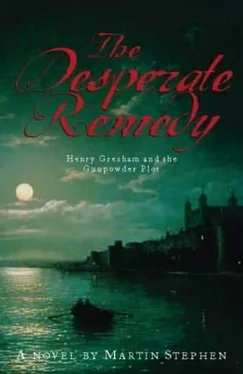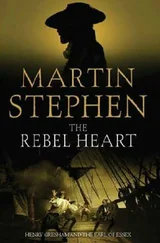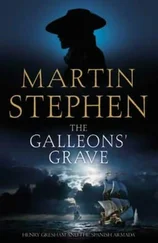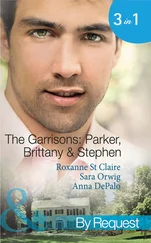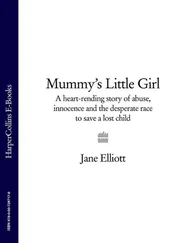Martin Stephen - The Desperate remedy
Здесь есть возможность читать онлайн «Martin Stephen - The Desperate remedy» весь текст электронной книги совершенно бесплатно (целиком полную версию без сокращений). В некоторых случаях можно слушать аудио, скачать через торрент в формате fb2 и присутствует краткое содержание. Жанр: Исторический детектив, на английском языке. Описание произведения, (предисловие) а так же отзывы посетителей доступны на портале библиотеки ЛибКат.
- Название:The Desperate remedy
- Автор:
- Жанр:
- Год:неизвестен
- ISBN:нет данных
- Рейтинг книги:4 / 5. Голосов: 1
-
Избранное:Добавить в избранное
- Отзывы:
-
Ваша оценка:
- 80
- 1
- 2
- 3
- 4
- 5
The Desperate remedy: краткое содержание, описание и аннотация
Предлагаем к чтению аннотацию, описание, краткое содержание или предисловие (зависит от того, что написал сам автор книги «The Desperate remedy»). Если вы не нашли необходимую информацию о книге — напишите в комментариях, мы постараемся отыскать её.
The Desperate remedy — читать онлайн бесплатно полную книгу (весь текст) целиком
Ниже представлен текст книги, разбитый по страницам. Система сохранения места последней прочитанной страницы, позволяет с удобством читать онлайн бесплатно книгу «The Desperate remedy», без необходимости каждый раз заново искать на чём Вы остановились. Поставьте закладку, и сможете в любой момент перейти на страницу, на которой закончили чтение.
Интервал:
Закладка:
'You know Machiavelli? The books I gave you?'
'I've read them, yes.'
'And?' enquired Gresham.
'He's like most men. He thinks he's talking about everyone but he's actually only talking about himself. He's arrogant, so he spoils a good idea by claiming too much for it.'
Gresham thought for a moment. 'Machiavelli was captured and tortured when his Prince failed to be ruthless and strong. We don't need leaders who are good, or beautiful, or kind, or generous. We need leaders who're effective. Most of all we need peace. Stability.'
'You sound like Cecil, if what you told me about your little chat with him was true. How can you say that, who was brought up to war? You, who've lived your whole life as if it were a war? You, who of all people I know seem to exult in a fight?'
'Because I know for what I fight.'
'And what might that be?'
He sat in silence for a moment, reflective.
T fight to survive. It's all I can do. It's all I know. You, me, Cecil, we think we're in control, but really we're all actors in a play written by a madman, a play with no meaning and no sense. I know we can't win that fight, I know death is more powerful than any of us — but at least if I fight to survive I haven't given in. That way, death at least takes me on my terms. None of us can make the sun stand still. Yet we can make it run.'
'Is that why you fight Cecil?'
'I'm fighting him firstly because if I don't, I die. We've a truce at present, while he thinks I'm ill, but what he tried once he could well try again. The more I can find out about what he doesn't want me to know, the better armed I am against him.'
'Yet you could destroy him.' Jane said it as a simple matter of fact.
'I could destroy Cecil, I think, rather than merely keep him at bay. I choose not to. This isn't just about his life, or my life. For all his evil and his double-dealing, for all that he sums up everything I hold in contempt in a man's lust for power and wealth, his very evil helps hold the country together. It is as Machiavelli says. A man doesn't have to be pure to be a good ruler. He merely has to rule, and if in so doing he consigns his soul to Hell, then that's the price he pays for his worldly power. I fight Cecil only when he fights me, and when he ceases to rule well and with power. If there's an uprising planned and he can't see what's brewing, then I'll fight his ignorance only.'
'Is that all?' asked Jane. 'Would you fight for me?'
'I'd do more than fight for you,' he said simply. 'I'd die for you.' It was a simple statement of fact, uttered with no sense of drama. 'But I fight for someone else as well.'
‘I'd rather hoped I was the only one…' said Jane, who to her obvious irritation had managed to get something in her eye that was making it water.
'I fight for John Plowman, thin-wrapped in the bitter cold, pissing in the field in which he works and coming home with his hands bitten and scarred by the very plough that feeds him and his family and his Lord. For Meg Milkmaid, who's there waiting for John Plowman as he comes home. He may growl at her, or he may kiss her, or he may have her against her will, but that's in the way of things, that's how we were made, that's how we were meant to be. I know there are few freedoms in their lives — no freedom from hunger, from pain, from illness or from a corrupt and vengeful master. Yet they've some choice, and they make some choices. There's a freedom in the air they breathe, in the sight of cold blue light on a frosty morning, in the first leap of a fish in Spring. There's something good in their children, ragged-arsed though they be, some good in the work they do.'
'Well,' said Jane, pragmatically, 'this particular Meg Milkmaid remembers something a little different from her upbringing in this wonderful countryside you talk so lovingly of.'
'At least you were there for me to find you. You hadn't been trampled under a warhorse's hooves, stuck as a bleeding trophy on the end of a pike and ridden through the lanes with soldiers whooping for joy.'
He turned on Jane, not seeing her, but seeing instead the horrors that haunted him still at night.
'I've seen such things… such things as make me despair of God or Heaven. You remember Marlowe? "Why this is hell, nor am I out of it…" Well, I've seen no God, not here on earth, but I've heard God in music and in words, seen something of a God in the sunset or in a light-filled stone chapel in Cambridge as a song rises to Heaven. Yet I too think we live in Hell, and like Marlowe I despair of God, and from that despair comes my anger. And what have we, when all is left? John and Meg, living a life of hard toil, lit only by their need, their lust to survive, to see things through, to feed and clothe themselves and pass on that bare sustenance to their children. There's dignity enough in their mere survival, in their struggle to have and to hold a little human happiness to themselves in their short time here. They have enough to cope with, without we inflict rebellion and war on them. They need our help to survive. What difference to Meg and John and their growing horde if it's a James, an Elizabeth, a Henry or a Richard on the throne? What means it to them if it's a Plantagenet, a Tudor or a Stuart? What matter, as long as the soldiers stay in their barracks and their whorehouses, the enemy dare not invade and their Lord stands in some fear of London if he takes too many liberties with his tenants?
'We gentry, we nobles, we fight for the glitter, Jane. We fight for our power, our jewels and our wealth. Most of all we fight to gain power, because in wielding that power we give some meaning to our pathetic, flimsy little lives, before they are snuffed out by illness, by bad luck or simply by time.
'We fight for the wrong things. We shouldn't fight for our own power, our own lusts. We should fight to preserve a life for those who have no power except their power to survive. We should fight for those who have no power to fight for themselves.' There was a silence.
'My knight in shining armour,' said Jane, part teasing and part heart-torn, 'mounted on his pure white charger. Hasn't your charger gained a little dirt during the fight? How many men have you killed, Henry Gresham? How many of them do you remember, when you lie awake at night, thinking that no-one knows, or when you dream, and mumble restless names in your sleep? Do you really know what you fight? And is it so John and Meg can have peace in their mud hut of a home?'
There was a strangely flat tone in Gresham's response. 'So John and Meg can be left with some vestige of choice for their own lives. So they can survive too, with a shred of their dignity left to them as well.'
'He's right, mistress.'
They both jumped. Neither had heard Mannion enter the room. For one so large he could move like a cat when he chose.
'You take your pleasures where you can. You fight when you must. It's not about winning. It's about survival.' He handed them both a chalice of wine. 'See that there? Drink it. Enjoy it. It won't taste at all when you're dead meat. Nothing tastes when you're dead. So the whole game is to stay alive. Just that. There's no living at all for the dead.'
Jane levelled a dark look at Mannion, and then at Gresham. 'So by the men's philosophy, if you've to kill a whole nation to stay alive yourself then it's justified? What about Meg and John and their brats then?'
'It don't come to that, hardly ever,' said Mannion easily, sitting down and slurping from the tankard of ale he had brought for himself. 'Only Kings think that the whole country dies if they die, and so kill all their folk in the name of their reigning! No, and that's why they need men like Sir Henry here, to work for them and do their dirty work. It's what he does. He puts them right. His job is to see that only enough men die. Bastards like that Essex, bastards like this Catesby, they reckon their glory is in how many people they take with them. Forget how many Sir Henry's killed. Ask how many he's saved.'
Читать дальшеИнтервал:
Закладка:
Похожие книги на «The Desperate remedy»
Представляем Вашему вниманию похожие книги на «The Desperate remedy» списком для выбора. Мы отобрали схожую по названию и смыслу литературу в надежде предоставить читателям больше вариантов отыскать новые, интересные, ещё непрочитанные произведения.
Обсуждение, отзывы о книге «The Desperate remedy» и просто собственные мнения читателей. Оставьте ваши комментарии, напишите, что Вы думаете о произведении, его смысле или главных героях. Укажите что конкретно понравилось, а что нет, и почему Вы так считаете.
